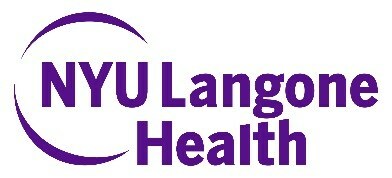Adding Nurse Case Managers to Telehealth Significantly Lowers Blood Pressure in Black and Hispanic Stroke Survivors
Adding Nurse Case Managers to Telehealth Significantly Lowers Blood Pressure in Black and Hispanic Stroke Survivors
PR Newswire
NEW YORK, June 6, 2024
NEW YORK, June 6, 2024 /PRNewswire/ -- Low-income Black and Hispanic stroke survivors with uncontrolled hypertension had a more than two-fold reduction in blood pressure when they tracked it at home and sent their readings to a nurse case manager. The gains were in systolic blood pressure specifically at one year into the study and when compared to a similar group of patients who did not have access to a nurse.
Led by researchers at NYU Langone, the study is the first to examine differences in home blood pressure monitoring with or without nurse case management. Further, the findings, published online June 6 in the Journal of the American Medical Association (JAMA), addressed controlling hypertension in low-income Black and Hispanic patients with stroke across multiple hospital systems.
"We found that low-income Black and Hispanic patients with stroke and significant comorbidity benefit greatly from telemedicine in general, which we know ramped up during the COVID-19 pandemic," said study lead author Gbenga Ogedegbe, MD, MPH, director of the Institute for Excellence in Health Equity and professor in the Departments of Population Health and Medicine at NYU Grossman School of Medicine. "The benefit of home blood pressure telemonitoring was even more profound with the addition of nurse case management."
While stroke mortality has fallen as a whole over the past ten years, Black and Hispanic patients continue to have higher rates of recurrent stroke compared to White patients. Black adults are 50 percent more likely to suffer a stroke and Black men are 70 percent more likely to die from a stroke compared to their White counterparts. Hypertension is a major risk factor for stroke, with the disparities stemming from factors such as unequal access to healthcare and effective treatments, and poorer adherence to medications.
"Our goal is for enhanced telehealth programs to be implemented as standard practice for management of hypertension in this vulnerable population that is underserved and suffers adverse social determinants of health that result in unjust health disparities," said Ogedegbe.
How the Study Was Conducted
The research team enrolled a total of 450 low-income Black and Hispanic stroke survivors with uncontrolled hypertension and other chronic conditions from eight stroke centers across four New York City health systems (NYC Health + Hospitals, NYU Langone Health, SUNY Downstate Medical Center, and Columbia University Medical Center). Study participants were randomly assigned to either the intervention group receiving home blood pressure telemonitoring with nurse case management (enhanced telemedicine) or a control group receiving only home blood pressure telemonitoring. Seventy-two percent of all enrolled study participants had an annual household income of under $25,000.
Patients in both groups received home blood pressure monitors and were instructed to take their blood pressure 12 times per week for one year. Readings were wirelessly transmitted to a web-based portal and monthly reports were sent to providers. Any reading that fell outside of an acceptable range triggered a phone call to the patient from a clinician.
In addition to home blood pressure telemonitoring, patients in the intervention group also received 20 telephone counselling calls from trained nurse case managers over the course of the year. During the calls, the nurses educated patients about blood pressure, stroke symptoms and lifestyle changes (including physical activity, weight loss, nutrition and the importance of adhering to prescribed medications) that could lower blood pressure. Nurses also checked that patients were keeping up with home blood pressure monitoring, and addressed any challenges expressed by patients.
The two main outcomes were patients' blood pressure after one year, and rate of recurrent stroke within two years. While both groups had a significant decline in systolic blood pressure after one year compared to baseline (with two and half times greater decline among patients in the intervention group), there was no difference in rate of recurrent stroke between the two groups at two years.
Only four percent of total patients enrolled in the study had another stroke within two years (nine patients in the intervention group and nine in the control group). Ogedegbe maintains that additional studies are needed to better understand long-term clinical outcomes, cost effectiveness, and generalizability of nurse case management enhanced telehealth programs.
"Our ongoing work shows the urgent need to reduce racial disparities in hypertension-related outcomes between communities of color and White patients," said Tanya M. Spruill, PhD, associate professor in the Departments of Population Health and Medicine, and the study's senior author. "We believe that telehealth programs to manage uncontrolled hypertension could play an important role in addressing structural inequities in care and substantially improve outcomes in Black and Hispanic stroke survivors."
In addition to Ogedegbe, study co-authors from NYU Langone include senior author Tanya M. Spruill, PhD, Stephen K. Williams, MD; Adebayo Ogunlade, MPH; Chigozirim Izeogu, MD, McGovern Medical School at UT Health Houston; Joseph P. Eimicke, MS, Jian Kong, MS, Stephanie A. Silver, MPH, Jeanne A. Teresi, EdD, PhD, Olajide Williams, MD, Columbia University; Helen Valsamis, MD, and Susan W. Law, DO, Steven R. Levine, MD, NYC Health + Hospitals; Salina P. Waddy, MD, National Center for Advancing Translational Sciences.
The research was supported by the National Institute of Neurological Disorders and Stroke (NINDS) of the National Institutes of Health (NIH), grant number U54 NS081765.
Media Inquiries:
Sasha Walek
(646) 501-3873
sasha.walek@nyumc.org
![]() View original content to download multimedia:https://www.prnewswire.com/news-releases/adding-nurse-case-managers-to-telehealth-significantly-lowers-blood-pressure-in-black-and-hispanic-stroke-survivors-302166246.html
View original content to download multimedia:https://www.prnewswire.com/news-releases/adding-nurse-case-managers-to-telehealth-significantly-lowers-blood-pressure-in-black-and-hispanic-stroke-survivors-302166246.html
SOURCE NYU Langone Health












